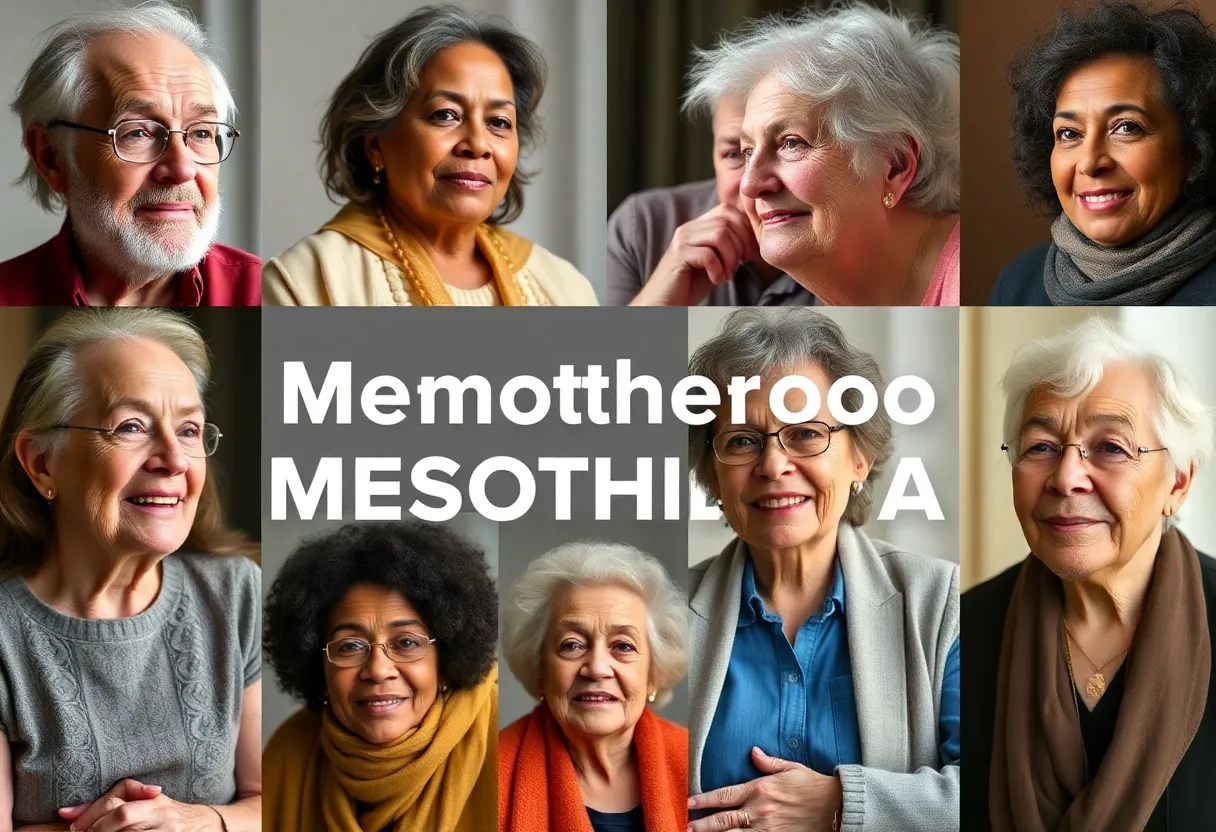Long-Term Survivors of Mesothelioma: Stories and Lessons
Mesothelioma is a rare and aggressive cancer primarily caused by asbestos exposure. The prognosis for this disease has historically been poor, with many patients facing a life expectancy of only a few months after diagnosis. However, a number of individuals defy these expectations, becoming long-term survivors against the odds. Their survivor stories not only inspire hope but also provide critical mesothelioma lessons for patients, families, and healthcare providers.
Understanding Mesothelioma
Mesothelioma typically affects the lining of the lungs, heart, or abdomen. It presents in four main types: pleural, peritoneal, pericardial, and tunica vaginalis. Symptoms often include difficulty breathing, chest pain, and abdominal swelling. Diagnosis is frequently delayed due to the slow onset of symptoms, leading many patients to be diagnosed at advanced stages.
Survivor Stories: Real-Life Inspiration
John’s Journey: Overcoming the Odds
John was diagnosed with pleural mesothelioma at the age of 62. With no prior knowledge of asbestos exposure, the diagnosis was shocking. After intensive research, he decided to pursue a combination of treatments, including surgery, chemotherapy, and immunotherapy. Through his grit and determination, John has now surpassed a decade as a survivor. His story showcases the importance of advocating for oneself in treatment plans.
Mary’s Experience: The Power of Support
Mary’s diagnosis came during an annual checkup when she was only 54. Her initial reaction was despair; however, Mary found resilience through her family and support groups. She participated in clinical trials and sought holistic treatments to complement her medical regimen. Now three years cancer-free, Mary emphasizes the necessity of emotional and psychological support, stating it was crucial to her recovery.
George’s Approach: The Importance of Early Detection
George’s story is a testament to the power of early detection. After being exposed to asbestos during his military service, he underwent regular checkups. When he started experiencing symptoms, his medical team was able to catch his mesothelioma at an earlier stage, allowing for a surgical intervention that significantly improved his prognosis. He now advocates for regular screenings, especially for those with known exposure.
Key Lessons from Long-Term Survivors
1. Advocate for Your Health
Many survivors like John learned the importance of active involvement in their care. Knowledge is power. Patients should educate themselves about their condition, ask questions, and discuss all possible treatment options with healthcare providers.
2. Seek Comprehensive Support
As exemplified by Mary’s experience, support systems play a vital role in survival. Support groups offer both emotional and practical resources. They connect patients with others who understand their struggles.
3. Explore Clinical Trials
George’s early detection story highlights an important reality: clinical trials can offer access to cutting-edge therapies. Engaging in research studies not only provides options that may not be available otherwise, but also contributes to the broader understanding of mesothelioma treatments.
4. Prioritize Holistic Health
Many survivors find success by incorporating holistic approaches alongside traditional treatments. Mindfulness, nutrition, and exercise can improve quality of life, aid in recovery, and boost both physical and mental health. Mary credits yoga and healthy eating as key components of her wellness strategy during treatment.
Challenges Faced by Long-Term Survivors
Living with and beyond mesothelioma is not without challenges. Long-term survivors often face psychological and emotional hurdles. Anxiety about recurrence, survivor’s guilt, and lifestyle changes can impact daily living. Furthermore, survivors can experience long-term side effects from treatments, including fatigue, cognitive dysfunction, and changes in physical ability.
Addressing Mental Health
Prioritizing mental health is vital for survivors. Access to counseling and therapeutic services can significantly benefit emotional well-being. Many survivors advocate for mental health screenings as a routine part of cancer care.
Staying Informed About New Therapies
Survivors also emphasize the importance of staying abreast of new treatments and research. Ongoing education can empower patients to make informed decisions regarding their health. Many survivors turn to reputable cancer organizations and medical institutions for the latest data.
The Role of Advocacy
Long-term survivors often become advocates for others affected by mesothelioma. They engage in public speaking, participate in fundraising for research, and work to raise awareness about asbestos exposure. Their voices play a critical role in shaping public policy and improving the overall landscape of cancer treatment and support.
Joining Advocacy Organizations
Organizations dedicated to mesothelioma advocacy provide platforms for survivors to share their stories and advocate for others. Engaging in these movements helps to build a community and create a collective voice calling for change. Advocating can also serve as a healing process for survivors.
Conclusion: Hope and Resilience
The journey through mesothelioma is undeniably challenging. However, the stories of long-term survivors remind us of the strength of the human spirit. Their experiences provide profound insights into the importance of proactive health management, emotional support, and community engagement. Each survivor teaches us invaluable mesothelioma lessons—lessons about resilience, hope, and the relentless quest for a cure.
Long-term survivors are a beacon of inspiration for those currently battling this aggressive disease. Their paths may vary, but their collective advocacy can lead to improved outcomes for future patients. Understanding their stories serves not just as inspiration but also as a call to action within the medical community and society at large.



















